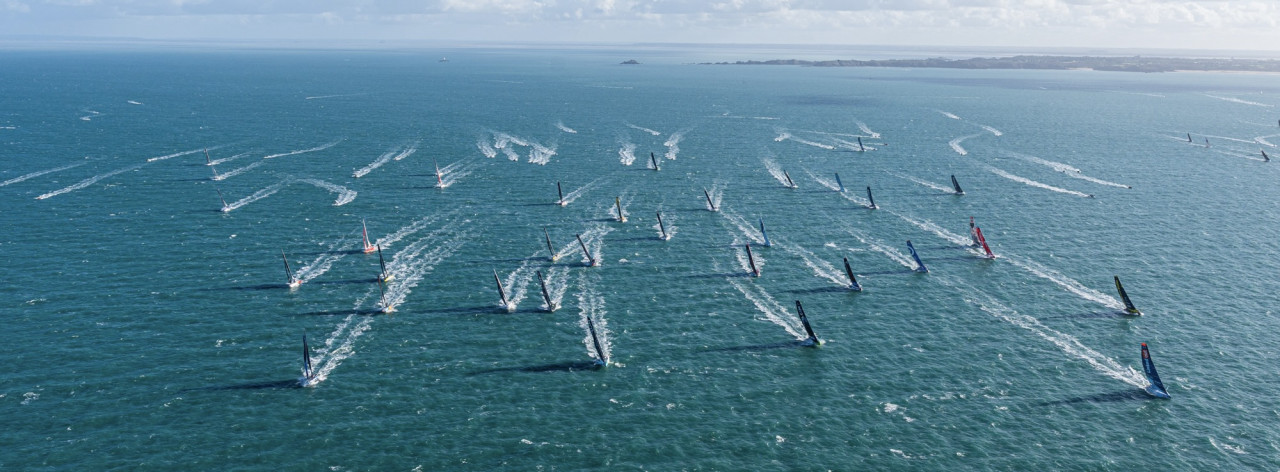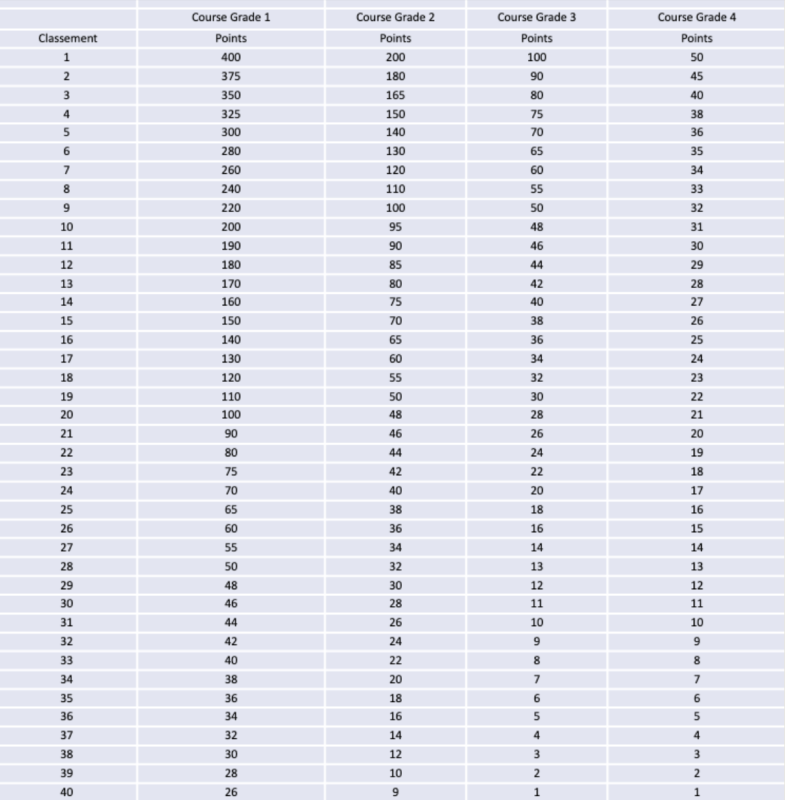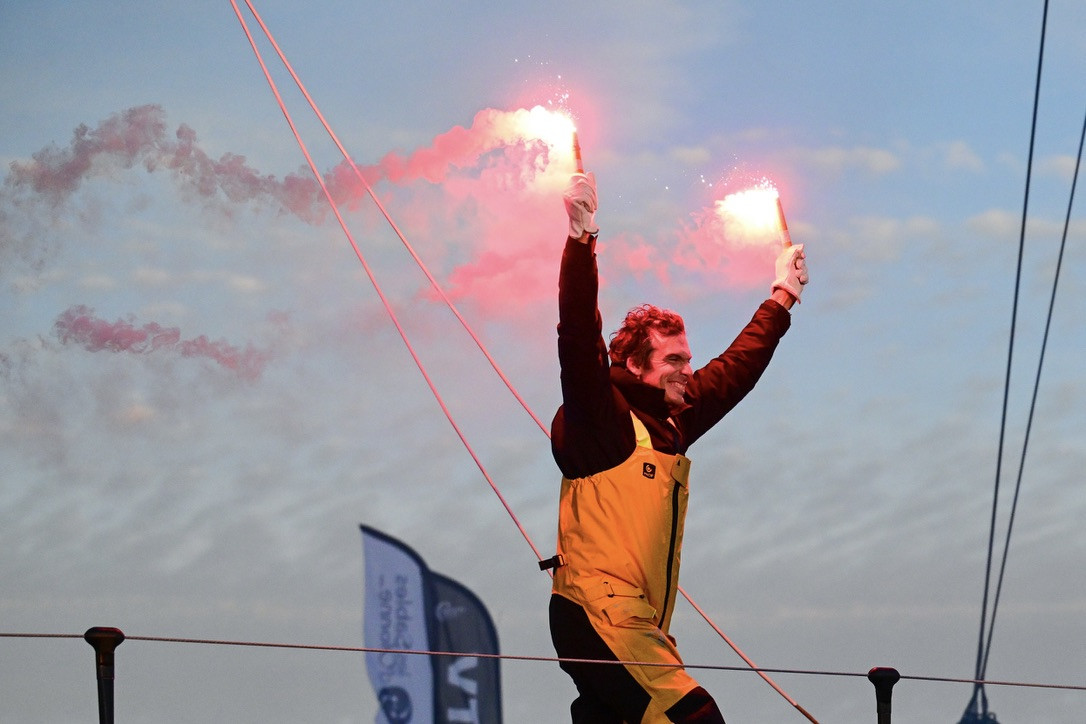

The IMOCA Globe Series embody the shared ambition of skippers and race organizers: to strengthen the connections between the various events and offer a unified vision of top-level competition.
The Annual IMOCA Globe Series Championship is based on a points system that rewards consistency and excellence. Through this ranking, skippers accumulate points throughout the year based on their performances in the IMOCA Globe Series races, whether sailed solo or as part of a crew.
For the first time, the two most iconic round-the-world races are integrated into a single program. The Ocean Race, a legendary crewed competition, has joined the IMOCA Globe Series, enriching a schedule that now spans four years, with 18 races across 13 countries. This union marks a major milestone in the history of competitive sailing.
Grade 1 : Round-the-world races
Vendée Globe, The Ocean Race
Grade 2 : Transatlantic races and races over 2,500 nautical miles
Route du Rhum, Vendée Arctique, New York Vendée, The Ocean Race Europe, Transat Jacques Vabre, Retour à La Base, The Transat CIC…
Grade 3 : Races between 1,000 and 2,500 nautical miles
Course des Caps
Grade 4 : Races under 1,000 nautical miles
Défi Azimut, Rolex Fastnet Race, 1000 Race
The points system ensures fair distribution and highlights both individual and team performance:
Leg-Based Races
Points are awarded for each stage based on the ranking.
For a grade X race consisting of N stages, points are calculated as follows:
Points per stage= Total points for the grade X / N
The total points for the race are the sum of the points earned in each stage.
Example for a grade 2 race with 5 stages:
The skipper ranked 1st earns 40 points per stage (200/5).
The skipper ranked 2nd earns 36 points per stage (180/5).
The total is calculated by summing the points from all 5 stages.



Since 2018, for the first time in the history of our sport, a lasting connection has been established between the Vendée Globe and The Ocean Race (formerly the Volvo Ocean Race), bringing together the two greatest offshore races on the planet.
At the heart of this evolution are the IMOCA monohulls, now capable of competing in both the greatest solo race, the Vendée Globe, and the longest and most extreme crewed maritime marathon, The Ocean Race.
The 2023 edition of The Ocean Race marked a turning point by bringing together a mixed fleet of VO65 and IMOCA boats for a crewed, round-the-world race with stopovers. The race began as planned in January 2023 from Alicante, Spain. The course was unveiled in December 2021, and once again, the boats crossed three oceans, rounded the three major capes, and stopped on five continents.
This first crewed round-the-world race in IMOCA confirmed The Ocean Race's role as one of the most challenging and prestigious sailing competitions in the world, strengthening its strategic alliance with the IMOCA Class.
Highlights of the 2023 Edition
 © Vincent Curutchet / Alea
© Vincent Curutchet / AleaThe 10th edition, which commenced on November 10, 2024, from Les Sables-d’Olonne, was a milestone in the race's history. Forty skippers, representing 11 nationalities, competed aboard cutting-edge monohulls. Among these, 25 foiling boats — including the latest generation designs — showcased groundbreaking advancements in technology and performance.
This edition also set new benchmarks for diversity, with six women on the starting line, all completing the race. Notably, Violette Dorange, at just 23 years old, became the youngest competitor in Vendée Globe history.
Charlie Dalin captured victory in record-breaking fashion, crossing the finish line in 64 days, 19 hours, 22 minutes, and 49 seconds, slashing nearly 10 days off the previous record.
The race’s commitment to sustainability was underscored by the launch of the "Vendée Globe Foundation," a partnership with UNESCO to fund ocean protection initiatives.
As the Vendée Globe evolves, it continues to inspire and set the standard for solo offshore sailing, cementing its legacy as one of the world’s most demanding and celebrated races.
For more information on the ultimate challenge for solo sailors, click here.